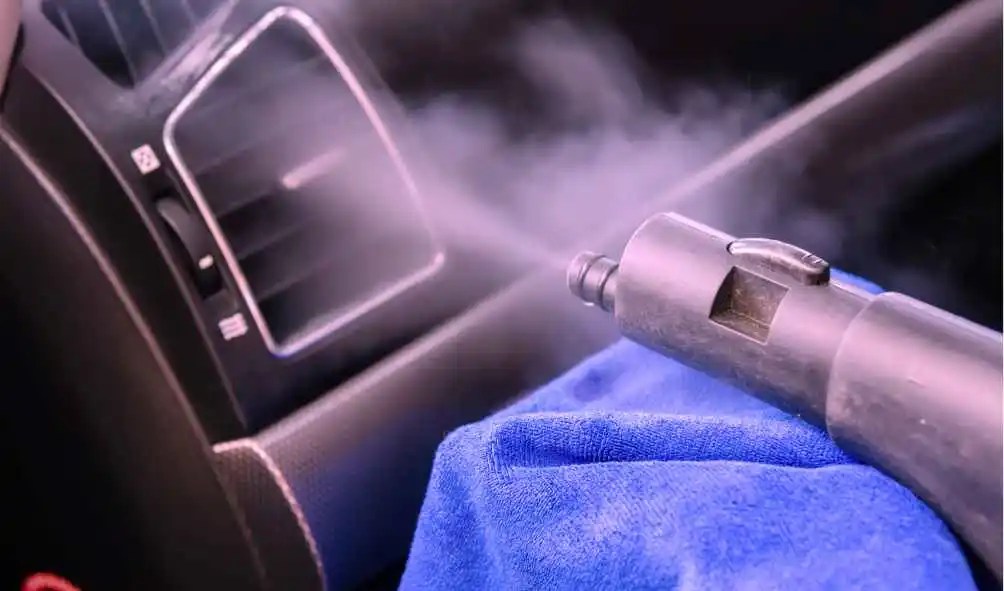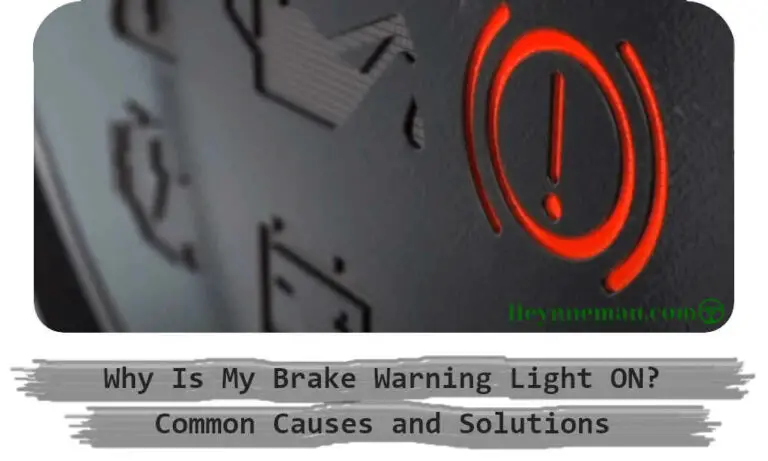Why Does My Car Smell Like Rotten Eggs? Causes And Fixing Explained
Have you ever gotten into your car, started it up, and been hit with the nauseating smell of rotten eggs? Not only is this smell unpleasant, but it can also be a sign of a serious issue with your vehicle. In this article, we’ll take a closer look at what causes the rotten egg smell in a car, how to diagnose the issue, and what you can do to fix it.
What Causes the Rotten Egg Smell in a Car?
Sulfur compounds in the fuel system
The most common cause of a rotten egg smell in a car is sulfur compounds in the fuel system. When burned, these compounds produce hydrogen sulfide, which has a distinct “rotten egg” odor. In some cases, this can be caused by the type of fuel you’re using, particularly if it’s low-quality or has been contaminated.
Malfunctioning catalytic converter.
Another potential cause of the rotten egg smell is a malfunctioning catalytic converter. The catalytic converter is responsible for converting harmful exhaust gases into less harmful ones, and if it’s not functioning properly, it can produce hydrogen sulfide as a byproduct.
Problem with your car’s battery
Finally, a problem with your car’s battery can also cause a rotten egg smell. If your battery is leaking, it can produce sulfuric acid, which has a similar odor to hydrogen sulfide.
When Car Battery Dead? Must Read For You
Symptoms of a Rotten Egg Smell in a Car
Aside from the obvious smell, you might notice several other symptoms if your car has a rotten egg smell. First and foremost, hydrogen sulfide is toxic, so if you’re smelling it in your car’s cabin, it could pose a health risk to you and your passengers.
Also, hydrogen sulfide can affect your car’s performance, causing issues like decreased fuel efficiency or rough idling. Over time, it can also cause damage to your car’s exhaust system.
How to Diagnose a Rotten Egg Smell in a Car?

If you suspect that your car has a rotten egg smell, the first step is to identify the source of the odor. One way to do this is by visually inspecting your car’s engine bay and exhaust system. Look for signs of damage or leaks in the fuel system, battery, and catalytic converter.
If you don’t see anything obvious, you may need to use an OBD-II scan tool to read any diagnostic trouble codes (DTCs) generated by your car’s computer.
If neither of these methods is successful, you may need to perform diagnostic tests to pinpoint the issue. This could include a fuel pressure test or a compression test, depending on the suspected source of the problem.
How to Fix a Rotten Egg Smell in a Car?
Once you’ve identified the source of the rotten egg smell, you can take steps to fix it. If the issue is with your car’s fuel system, a fuel system cleaning may be necessary to remove any sulfur buildup. In more severe cases, you may need to replace the fuel injectors or fuel pump.
If the issue is with your catalytic converter, it will likely need to be replaced. This is a more expensive repair, but it’s important to address it promptly to prevent further damage to your car’s exhaust system.
If your car’s battery is the source of the problem, you’ll need to replace it as soon as possible. Be sure to follow proper safety procedures when handling a leaking battery, as sulfuric acid can be dangerous if it comes into contact with your skin or eyes.
Can I drive my car if it smells like rotten eggs?
While it is technically possible to drive your car if it smells like rotten eggs, it’s not advisable to do so. Hydrogen sulfide, the gas responsible for the rotten egg smell, is toxic and can pose a health risk if inhaled in large amounts.
Additionally, a rotten egg smell can be an indication of a serious issue with your car’s fuel system, catalytic converter, or battery, which could lead to further damage if not addressed promptly.
If you notice a rotten egg smell in your car, it’s best to have it diagnosed and repaired by a qualified mechanic before driving it again. If the issue is with your catalytic converter, for example, continued driving could cause damage to your car’s exhaust system and lead to more expensive repairs down the line.
In short, it’s always better to err on the side of caution and have your car inspected by a professional if you notice any unusual smells or symptoms.
Preventative Measures
To prevent a rotten egg smell in your car, it’s important to stay on top of regular maintenance tasks like oil changes and air filter replacements. You should also use high-quality fuel and fuel additives and store your car correctly when it’s not in use.
What keeps the car smelling fresh?
There are several things you can do to keep your car smelling fresh and clean:
- Cleanliness
Regular cleaning of your car’s interior is the best way to keep it smelling fresh. This includes vacuuming the carpets and seats, wiping down surfaces, and cleaning the windows. Avoid eating or smoking in the car to reduce the amount of odors that accumulate.
- Air fresheners
Many types of air fresheners are available for cars, from traditional hanging air fresheners to plug-in devices that use essential oils or other fragrances. Choose a scent that you enjoy and that is not too overpowering.
- Charcoal bags
Charcoal bags are a natural way to absorb odors in your car. These bags contain activated charcoal, which is a natural odor absorber. Place one or more bags in your car and they will absorb odors over time.
- Baking soda
Baking soda is another natural odor absorber that can be used in your car. Sprinkle baking soda on the carpets and seats, let it sit for a few hours, and then vacuum it up.
- Cabin air filter
The cabin air filter in your car helps to remove contaminants from the air entering the cabin. If the filter is dirty or clogged, it can contribute to unpleasant odors in the car. Be sure to have the filter replaced according to the manufacturer’s recommendations.
By keeping your car clean, using air fresheners or natural odor absorbers, and maintaining the cabin air filter, you can keep your car smelling fresh and pleasant.

Conclusion
A rotten egg smell in your car can be a sign of a serious issue that requires prompt attention. Whether the problem is with your fuel system, catalytic converter, or battery, it’s important to diagnose and fix the issue as soon as possible to prevent further damage to your car and ensure your and your passengers’ safety.
By staying on top of regular maintenance tasks and using high-quality fuel and additives, you can help prevent a rotten egg smell from occurring in the first place. If you notice a smell, take action quickly to address the issue and get back on the road safely. In conclusion, a rotten egg smell in your car is not something to ignore. By understanding what causes the issue, how to diagnose it, and what you can do to fix it, you can keep your car running smoothly and avoid costly repairs down the line.






